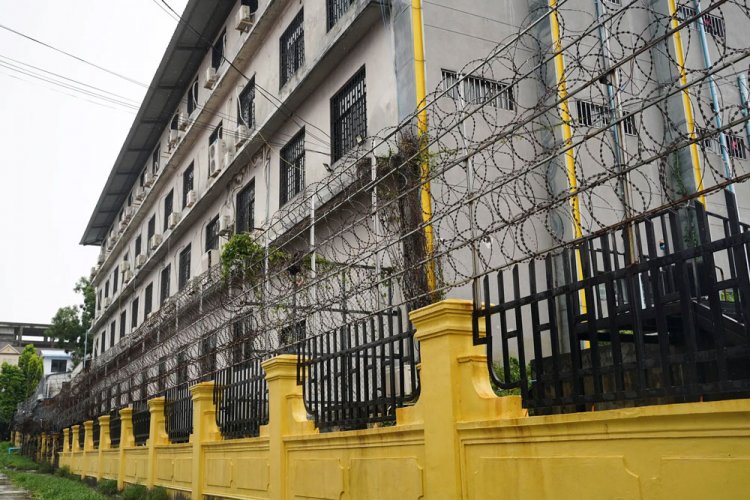Cyberscam Victims in Cambodia Fear for their Freedom Despite their Rescue

01-12-2023
Jeanne Gachet
Southeast Asia & Pacific Team
Global Human Rights Defence
Background
Southeast Asia has long been infamous for frequent human trafficking. However, technological developments have created a new money-making field for trafficking rings, focusing more and more on cyber crimes. In fact, the UN has estimated that at least 120.000 people are currently being forced to conduct cyber scams in Myanmar, and 100.000 in Cambodia, mainly in the coastal city of Sihanoukville.
Jack Sims, the director of the International Justice Mission NGO in Cambodia, has reported that there are “thousands of people in Cambodia being forced to work in scamming compounds.” These compounds can be found in hotels, casinos, residential complexes, and generally all over the country. The Taiwanese Criminal Investigation Bureau has also established links between Chinese-owned casinos in Sihanoukville and trafficking operations. Furthermore, concerning features have been associated with the spaces where these fraudulent activities are led, notably recognizable by the presence of bars or barbed wires on windows to prevent the enslaved people from escaping the facilities.
Additionally, dozens of foreigners who originally had the intent of bettering their financial situation have been rescued from these companies by NGOs, and are mainly of Chinese, Thai, Indonesian, Vietnamese, and Malaysian nationality. These individuals have reported the poor conditions of living, with mandatory confinement, and the overarching threat of being sold on the slave market. Videos of these scamming operations were leaked in 2021, showing severe beatings, extortion, and other forms of violent abuse endured by the trafficking victims.
Current situation
On the 24th of November, Aljazeera published an eye-opening interview of Carla Ramos Miembro, a Filipino woman that was formerly trafficked for cyber scamming purposes, in which she recounts her experience with being rescued by Cambodian authorities. Seven months prior to her rescue, Miembro flew to Bangkok after receiving a fake job offer from Binance, a leading cryptocurrency company. Upon arrival, she was driven to a facility close to the Cambodian border, where she was asked to pay a $5.000 ransom. She was then sold to a Chinese cyber scam gang, which coerces UK citizens into investing in fake crypto currency.
On the 25th of September, she was told to pack in order to be displaced to Sihanoukville. She managed to get a hold of a mobile phone which she used to call for help. A police unit was subsequently placed in the route, and was able to intervene. The twenty-seven victims and their traffickers were taken to the Anti-Commercial Gambling Crimes Department headquarters and were placed in detention. The victims were held like prisoners, forced to sleep on the floor and survive in poor sanitary conditions. Two months after their rescue, the group is still waiting for released papers to be signed in order to return to the Philippines.
Some days after the rescue operation, police officers threatened the detainees to sell them back to the gang, a tactic commonly used by authorities to further extort the victims’ money. Most people in this situation are often deferred to immigration detention centers for a month before being able to return to their homes. Bribes are often necessary in order for release to be granted. Despite the increase in crimes of this sort, the Cambodian government appears to put little effort into eliminating this source of concern, and continues to release too little information on the topic.
Sources and further information:
Desai, Q., Yuk Yue, L., & Cheng, R. (2022, November 30). Human trafficking, job scams linked to Chinese-owned casinos in Sihanoukville. Radio Free Asia. https://www.rfa.org/english/news/china/taiwan-cambodia-scam-08232022132211.html
Jolley, M. A., & Boyle, D. (2022, August 11). Meet Cambodia’s cyber slaves. Al Jazeera. https://www.aljazeera.com/features/longform/2022/8/11/meet-cambodia-cyber-slaves
Kennedy, L., & Southern, N. P. (2023, November 24). ‘Just as scared’: Cyberscam victims in Cambodia find no freedom in rescue. Al Jazeera. https://www.aljazeera.com/features/2023/11/24/just-as-scared-cyberscam-victims-in-cambodia-find-no-freedom-in-rescue
Willemyns, A. W. (2023, August 29). UN: Hundreds of thousands of people forced to scam. Radio Free Asia. https://www.rfa.org/english/news/cambodia/un-scam-compounds-08292023134753.html#:~:text=Cambodia%20and%20Myanmar,-Online%2Dscam%20slave&text=But%20




 GHRTV
GHRTV 




























